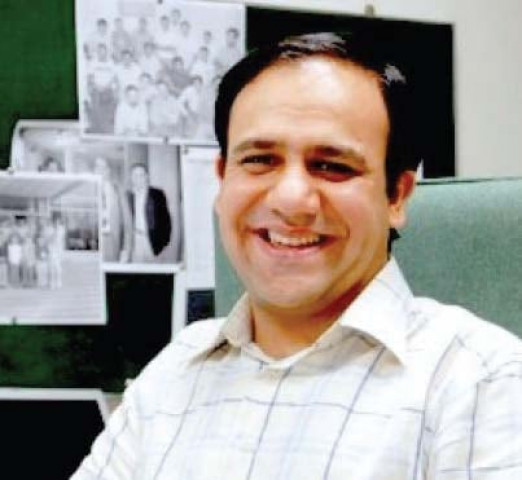Top innovator gives SSUET audience a reality check on mediocre research
For conference, 98 out of 370 research papers made the cut this year.

The year was 2000 when a mentor at the Massachusetts Institute of Technology asked his untested Pakistani student, “Do you know how many scientific and research papers get published every year?” He did not know the answer, which was more than one million or one research paper every 30 seconds. “How the hell then do you think you could make an impact by just publishing one research paper?” the mentor went on to ask.
The student didn’t sleep that night but the conversation had completely changed the way he looked at his career. That student, who was recently named by the MIT Technology Review in its list of the 35 “World’s Top Young Innovators for the year 2011” was Dr Umar Saif. He was the keynote speaker on Thursday at the inaugural session of the 14th IEEE International Multi-topic Conference (INMIC 2011) organised by the Sir Syed University of Engineering & Technology in association with the Institute of Electrical And Electronics Engineers, Karachi Chapter. Dr Saif is currently working as the chairman of the Punjab IT Board and is an associate professor at LUMS.
“I’m taking this opportunity to yank you back to reality. Working in this country is so bloody mediocre when it is no time to be mediocre,” said Dr Saif. “It is not just about writing research papers, holding conferences and submitting research proposals.”
His suggestions were received with applause: “Better start building things. Choose one thing as your subject of research that could have the potential to change the world.”
Endorsing Dr Saif views, the conference’s chair, Dr Syed Misbahuddin, told The Express Tribune on the sidelines of the event that the growth of applied research culture in Pakistan will take time so they don’t expect overnight change. “What is necessary is to continue incessantly on the way to growth of such a culture that could result in collaborative research opportunities. This conference is just another right step in this direction,” he explained.
The new chief executive officer of the National ICT R&D Fund, Dr Syed Aun Abbas, also spoke. The programme seeks to cultivate industry-academia partnerships by funding concrete development and research initiatives. Dr Abbas underscored the significance of focused technological research that could help solve indigenous problems. “We tend to get billions of rupees every year. Now my endeavour is to spend it right so that it can have an impact on the nation.”
He added that the National ICT R&D Fund has sponsored this conference and Dr Saif in one of his research projects.
In October 2010, SSUET decided to be the venue of the fourteenth IEEE conference. For more than a year, the conference committee has been constantly working to make this happen, said Dr Misbahuddin.
“Honestly, we were not expecting the response that we had received in the form of research submissions,” he said. A total of 370 came in from all over the world. The university then contacted around 144 national and international reviewers, who are deemed experts in their respective fields, requesting them to go through the work. “Initially, 207 papers were shortlisted and then around 98 of the most practical research papers met the reviewers’ approval for this conference,” said Dr Misbahuddin, appearing satisfied with the acceptance ratio which was around 47 per cent.
SSUET Chancellor Zille Ahmed Nizami and philanthropist Sardar Yasin Malik, who presided over the inaugural session as the chief guest also spoke at the event. “I’m grateful to Malik for he once had requested us that no student of SSUET should be deprived of further education due to financial reasons and he is making up to it.”
In the three-day conference, four parallel technical sessions have been designed for each day during which research students will present their papers classified under ten broad fields of studies.
Around 15 international guest scholars and a number of local experts will participate in these sessions that cover the areas of Distributed & Grid Computing, Pervasive & Ubiquitous Computing Algorithms, Tools Applications & Web Technologies, Wireless & Network Security, Artificial Intelligence, Power Electronics & Control Engineering, FPGA & Semiconductor Material 7 Devices, Bio Medical & Bio information Security, Computer Graphics & Image Processing and Software Engineering & Database Warehouse.
During the conference, two side events have also been planned for the benefit of researchers as well as the general public. One is a lecture that Dr Raziq Yaqoob of the University of Tennessee will deliver on December 23 about applications of communication technology and their possible role in making our energy sector efficient. A panel discussion is set for December 24 to talk on interaction between academia for practical research in Pakistan.
Published in The Express Tribune, December 23rd, 2011.



















COMMENTS
Comments are moderated and generally will be posted if they are on-topic and not abusive.
For more information, please see our Comments FAQ